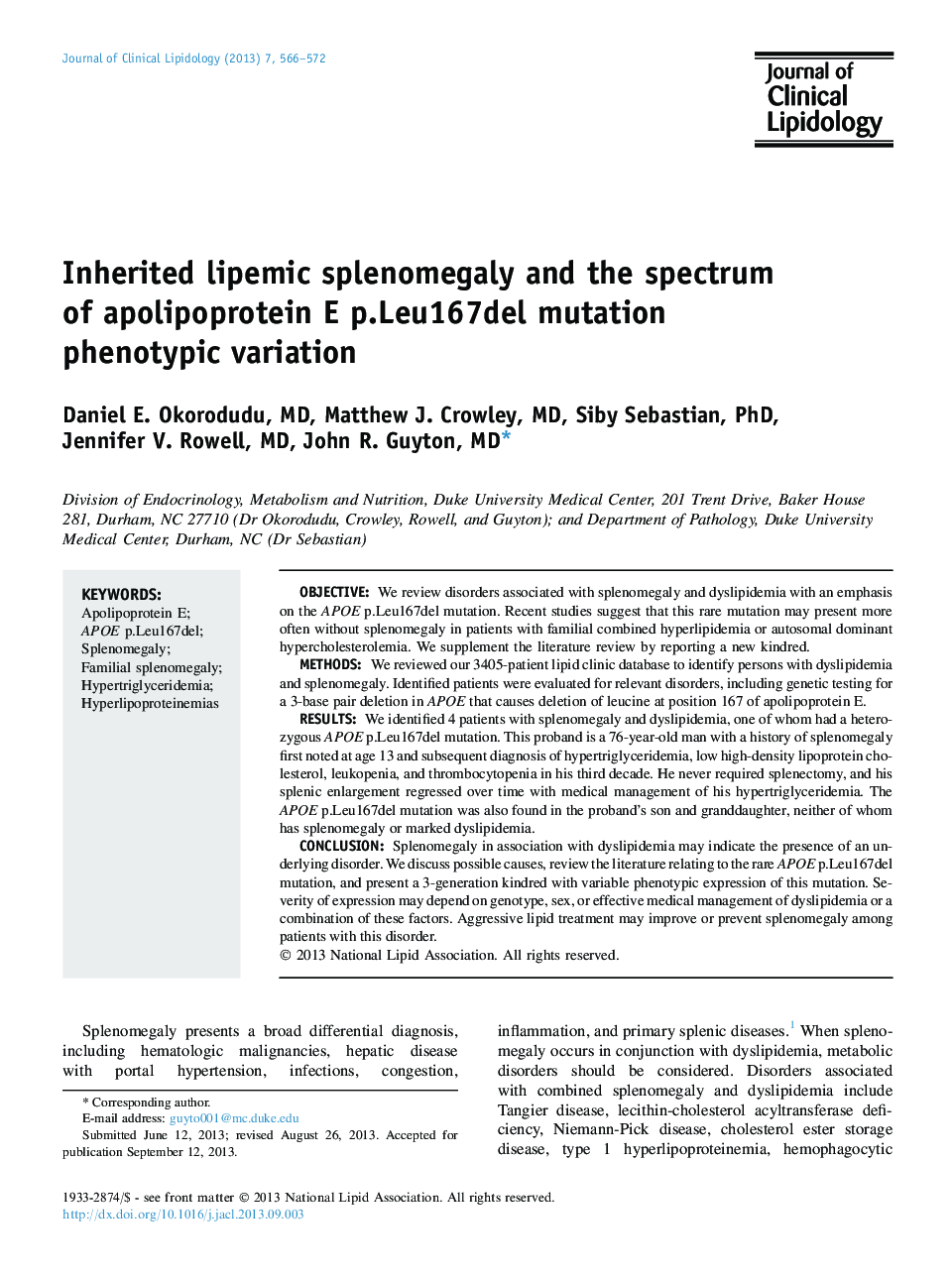| Article ID | Journal | Published Year | Pages | File Type |
|---|---|---|---|---|
| 2966181 | Journal of Clinical Lipidology | 2013 | 7 Pages |
►In hypertriglyceridemia with splenomegaly, splenectomy can raise triglyceride.►APOE p.Leu167del mutation and hypertriglyceridemia may lead to splenomegaly.►This mutation can also track with combined hyperlipidemia or hypercholesterolemia.►Male sex and apoE2 may promote splenomegaly in subjects with APOE p.Leu167del.►Triglyceride reduction may prevent or regress splenomegaly in susceptible patients.
ObjectiveWe review disorders associated with splenomegaly and dyslipidemia with an emphasis on the APOE p.Leu167del mutation. Recent studies suggest that this rare mutation may present more often without splenomegaly in patients with familial combined hyperlipidemia or autosomal dominant hypercholesterolemia. We supplement the literature review by reporting a new kindred.MethodsWe reviewed our 3405-patient lipid clinic database to identify persons with dyslipidemia and splenomegaly. Identified patients were evaluated for relevant disorders, including genetic testing for a 3-base pair deletion in APOE that causes deletion of leucine at position 167 of apolipoprotein E.ResultsWe identified 4 patients with splenomegaly and dyslipidemia, one of whom had a heterozygous APOE p.Leu167del mutation. This proband is a 76-year-old man with a history of splenomegaly first noted at age 13 and subsequent diagnosis of hypertriglyceridemia, low high-density lipoprotein cholesterol, leukopenia, and thrombocytopenia in his third decade. He never required splenectomy, and his splenic enlargement regressed over time with medical management of his hypertriglyceridemia. The APOE p.Leu167del mutation was also found in the proband's son and granddaughter, neither of whom has splenomegaly or marked dyslipidemia.ConclusionSplenomegaly in association with dyslipidemia may indicate the presence of an underlying disorder. We discuss possible causes, review the literature relating to the rare APOE p.Leu167del mutation, and present a 3-generation kindred with variable phenotypic expression of this mutation. Severity of expression may depend on genotype, sex, or effective medical management of dyslipidemia or a combination of these factors. Aggressive lipid treatment may improve or prevent splenomegaly among patients with this disorder.
